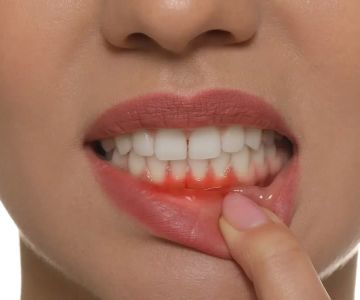Gum Health and Its Significance
Gum health is not just about having a pretty smile; it is crucial for overall oral and systemic health. Healthy gums provide the necessary support for our teeth, ensuring they stay firmly in place. However, when gum health is compromised, it can lead to various problems, including periodontal disease.
Causes and Risk Factors of Gum Disease
Dental plaque buildup is the primary cause of gum disease. Poor oral hygiene, smoking, diabetes, autoimmune diseases, hormonal changes, stress, genetics, and heart disease can all increase the risk of developing gum problems. The bacteria in plaque can cause inflammation and infection, gradually damaging the gums and the underlying bone.
Symptoms and Stages of Gum Disease
Gum disease often shows symptoms such as red or purple gums, bleeding, soreness, bad breath, pain when chewing, gum recession, loose teeth, and changes in the way teeth fit together. There are four stages of gum disease: gingivitis, mild periodontitis, moderate periodontitis, and advanced periodontitis. Early detection and treatment are essential as some stages are reversible, while advanced stages can cause significant damage and tooth loss.
Diagnosis and Tests for Gum Disease
Dentists diagnose gum disease during routine examinations by looking for plaque, asking about symptoms, and measuring the pockets around teeth using a periodontal probe. Dental X-rays are also taken to assess bone loss. Referrals to periodontists may be made for more detailed evaluations and treatment plans.
Treatment Options for Gum Disease
Depending on the severity and individual circumstances, treatments for gum disease include dental cleaning, scaling and root planing, pocket reduction surgery, LANAP, bone grafting, gum grafting, guided tissue regeneration, and platelet-rich fibrin/plasma therapy. Early-stage gum disease can often be reversed with improved oral hygiene, while more advanced cases require more invasive procedures.
Prevention of Gum Disease
Most people can prevent gum disease through consistent and proper oral hygiene, including brushing two to three times a day, flossing daily, using antibacterial mouthwash, avoiding smoking, and visiting the dentist for regular cleanings and exams. Those with genetic predispositions or underlying health conditions may need more frequent dental care.
Outlook and Prognosis for Gum Health
Although gum disease is not life-threatening, it can have significant implications for oral and overall health if left untreated. Early detection and appropriate treatment can help manage the condition and reduce the risk of complications. With proper care, gum health can be maintained, and the chances of tooth loss can be minimized.
Living with Gum Disease
If you experience symptoms like bleeding, tender, or swollen gums, it is crucial to see a dentist promptly. Regular dental visits and open communication with your periodontist are essential for effective treatment and management. Asking the right questions can help you better understand your condition and the treatment options available.
Gum health is of paramount importance. By being vigilant about oral hygiene, knowing the risk factors and symptoms, and seeking timely dental care, you can protect your gums and enjoy a healthy, beautiful smile for a lifetime.






 Acworth Smiles Dentistry4.0 (145 review)
Acworth Smiles Dentistry4.0 (145 review) Ryan J Donovan DMD, MS, PA Periodontics And Dental Implants4.0 (113 review)
Ryan J Donovan DMD, MS, PA Periodontics And Dental Implants4.0 (113 review) New Lenox Dental Group4.0 (46 review)
New Lenox Dental Group4.0 (46 review) Clubhouse Pediatric Dentistry5.0 (208 review)
Clubhouse Pediatric Dentistry5.0 (208 review) NuSet Dental Implants and Oral Surgery of Scottsdale4.0 (20 review)
NuSet Dental Implants and Oral Surgery of Scottsdale4.0 (20 review) Simply Beautiful Smiles of Abington, PA4.0 (142 review)
Simply Beautiful Smiles of Abington, PA4.0 (142 review) The Importance of Oral Health Education During Pregnancy for a Healthy Pregnancy
The Importance of Oral Health Education During Pregnancy for a Healthy Pregnancy Best Tips for Brushing Your Teeth Properly for Healthy Gums: Essential Techniques for Oral Health
Best Tips for Brushing Your Teeth Properly for Healthy Gums: Essential Techniques for Oral Health Why Skipping Dental Checkups Can Lead to Bigger Oral Health Problems
Why Skipping Dental Checkups Can Lead to Bigger Oral Health Problems Advantages of Porcelain Dental Restorations
Advantages of Porcelain Dental Restorations How Can Diabetes Cause Tooth and Gum Problems? Preventing and Managing Oral Health Issues
How Can Diabetes Cause Tooth and Gum Problems? Preventing and Managing Oral Health Issues Healthy Habits for Promoting Good Oral Health and Hygiene: Tips for a Healthy Smile
Healthy Habits for Promoting Good Oral Health and Hygiene: Tips for a Healthy Smile